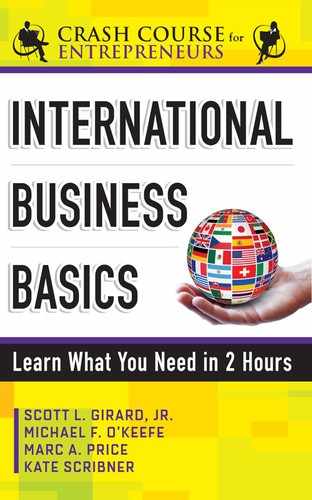Bribes and Black Money
This is one of the more unfortunate sides of doing
business internationally. Here’s a rundown of
what you can expect, and how to avoid it.
I’M NOT YOUR MOTHER. I hope you are not surprised by this revelation. Despite this fact, I’m going to give you some advice in this section, based purely on what I’ve seen in the real world. When it comes to doing business internationally, bribery is out there and it can put you in prison. Black money is also out there, and can also put you in prison.
Black money, for those who are unfamiliar, is money (typically cash) that is untraced and unaccounted for by a government for taxation purposes. Black money can range from a waiter’s tips not being declared as taxable income to sacks of money smuggled across borders in trucks for deposit in a foreign bank. Both kinds of transactions happen every day. You’d be surprised by what gets people hemmed up behind bars these days.
As I said, I’m not your mother, but I also don’t want to see you get into trouble with these real temptations beyond your borders either. Here’s another real piece of information: bribery is a slippery slope, and you never know when an off-the-books transaction will show up again in your future.
Bribery is considered a much bigger offense in some places than in other parts of the world. The United States, Canada, Australia and Western Europe see bribery as one of the worst offenses a business can commit. Other places like China, Russia, the Middle East, and Southwest Asia are more amenable to it, not at all because businesspeople there are criminals. It’s just more generally accepted in those cultures. What some might call “bribery”, others might call a “service tax”, “handling fee” or “entitlement”—in places where it would be strange if you didn’t offer such a gratuity to get a deal to the finish line.
I’ll be honest: Some people elect not to get into international business after all because they are so uncomfortable with having to face and perhaps get involved in these practices. Bribery is wrong, plain and simple; and dealing with black money promotes tax evasion and degrades the official economy. In fact, there are countries that are so depleted by black money that they can’t afford to operate legitimately. This in turn holds the countries back from real economic expansion because other international investors and donors won’t go near them, for fear that their money will disappear one day.
When you think about bribery, black money, and other forms of corruption, you probably think of drugs, prostitution, weapons, stolen kidneys, racketeering, bootlegged DVDs, forced labor, etc. It may shock you to hear that instead of all those industries, the field most commonly engaged in corruption worldwide is construction. Think about it: Many construction companies don’t just “do work”. They are typically contracted to work with raw or finished materials. Think about those materials: Where did they come from? How did they get here? Who produced them? There are so many different layers of business and work in the construction process, from contract awarding to labor to acquisition of materials, that it makes tracing money quite a challenge. In spite of this, there are thousands of perfectly upstanding construction companies who never go near corruption of any kind.
FYI, bribery is most common in countries with a weaker economy, where the government officials and employees don’t make a lot of money. Low salaries naturally make corruption more appealing.
You might ask, “But what if I find myself doing business in a place where bribery is expected—where I don’t even get a meeting unless I first present a bribe?” This can be sticky. It is then when having a good relationship with a trusted local businessperson can be an invaluable asset. Let that person explain and perhaps handle the situation for you.
A gift is not a bribe. There’s nothing wrong with presenting a host with a gift, especially if you’re visiting his office. The real difference is what the local government calls it. Sometimes a gift is just a gift; other times, a gift, even if it really is just a gift, is also a bribe. You might test the situation like this: If your host likes the gift so much that he awards you a contract, it may be judged a bribe. So whether your gift is a gift or a bribe, it’s most important to know how the country in which you’re doing business views the situation.
Another common type of bribery is paying local government officials to expedite legal processes or paperwork to get a deal done faster. There are some places where the local governments will sit on your paperwork until they get their money. So what do you do then? You should act, informed by your own values. One response, if they won’t process your paperwork until you pay them under the table, would be to report them to your embassy and let the international commerce folks there sort it out. Another is to pay and move on. I (not-your-mom) can’t advise you to just pay them, but I know many companies just pay up and get their business back on track. In fact, some multinational companies have guidelines for gifts and bribes that fit local practices.
In the United States, there are multiple agencies who monitor business operations for acts of corruption. Additionally, the Foreign Corrupt Practices Act was enacted in the United States in 1977 to put an end to companies who had slush (loose cash expense) funds dedicated solely to paying off local officials and politicians. Wherever you do business, be aware that dealing in bribes, black money and similar practices comes loaded with serious risks.
S.G.
